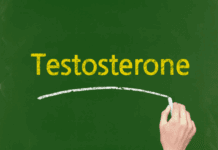Aging
Aging is a simple process of getting older. Every living thing ages. As humans age, they experience biological changes.
The rate at which individuals experience these changes varies. The specific changes will be different depending on which system of the body or organ they affect, individual genetics, and the person’s overall health and lifestyle. People age at different rates.
Sometimes, there is a difference between an individual’s chronological age, the number of years they lived, their physiological age, the age of their physical appearance, and overall health present.
Generally speaking, aging brings to mind midlife, and older life stages and the physical and psychological changes people in these stages face. Aging affects systems of the body in the following ways:
THE BRAIN
The brain shrinks as a person ages, and this shrinkage occurs on all levels from brain cells to structures, causing the brain to get smaller.
A shrinking brain can cause the memory and cognitive changes associated with aging. Researchers have found that the brain begins to shrink on average after age 40, with the most significant weight reduction after age 70.
THE CARDIOVASCULAR SYSTEM
People over 65 are at greater risk for cardiovascular diseases such as high blood pressure, heart attack, and stroke.
As humans age, fatty deposits can accumulate in blood vessels, and blood vessels may become stiffer (arteriosclerosis), making the heart work harder and increasing the risk for high blood pressure.
Heart muscles also weaken as people age, meaning the heart may not beat harder or faster with increased physical activity.
Other factors such as genetics and lifestyle choices like being sedentary, smoking, and obesity can also contribute to poor cardiovascular health.
THE MUSCULOSKELETAL SYSTEM
As people age, bones shrink and become thinner, increasing the risk for broken bones and pain. Muscles also become smaller and less flexible.
Both contribute to reducing coordination, balance, and stability, meaning people are more likely to be injured by falling.
Corresponding to the National Council on Aging falls are the main leading cause of injury, accidental death, and accident-related hospital admissions for people over 65.
THE DIGESTIVE AND URINARY SYSTEM
As with other body systems, individuals experience age-related changes to the digestive system and urinary tract.
Constipation can become a problem for people as they age. Factors like changes in the large intestine, medications, and reduced mobility can contribute to constipation, as can lifestyle actions such as not drinking enough water, eating enough fiber, or getting enough exercise.
Similarly, the bladder can lose elasticity, and muscles in the pelvic floor can weaken as people age making it difficult to empty the bladder.
An enlarged or inflamed prostate in men can affect their ability to empty the bladder fully. For some people, these factors lead to incontinence (urine leakage or loss of bladder control).
Other reasons older people may have incontinence include overweight or obesity, diabetes, and alcohol consumption.
EYES, EARS, TEETH, AND SKIN
Eyes, ears, teeth, and skin all change as people age. Changes in the eye’s shape and flexibility mean individuals may have difficulty focusing close up, become more sensitive to bright light, and have difficulty adjusting to light changes, such as when going outside or coming in from a sunny day.
Some structural eye changes, such as cataracts or macular degeneration, can cause limited vision or vision loss.
Hearing can become complex in loud spaces, and changes in the inner ear structure may make it challenging to hear high-frequency sounds or conversational tones.
Dental health can suffer as people age as well. Gums may recede from the teeth, increasing the risk of tooth decay, infection, and tooth loss.
Medications that can cause dry mouth and habits such as smoking or drinking alcohol can also negatively impact oral health.
Aging skin becomes thinner, less elastic, and more fragile. As people age, they bruise more efficiently, and wounds take longer to heal. Skin can become much dryer, and wrinkles can form.
WEIGHT
How the body processes food and burns calories (metabolism) slows down as people age. If individuals decrease their activities but continue to eat the same as younger, they will gain weight.
However, some people may have decreased appetite as they get older and may not consume enough calories, which can cause weight loss and malnutrition.
PSYCHOLOGY
Although cognitive impairment is not a part of normal aging, changes in the brain that occur as people age can slow memory and thinking skills.
Sometimes people forget names or have a more challenging time retrieving the word they want to say. Multitasking can become more complex.
Executive functions, including analyzing, planning, and solving problems, remain intact with normal aging but often require slightly more time than younger persons.
SEXUALITY
As people age, they remain sexual; however, they may experience a change in performance and pleasure due to vaginal drying in women or impotence in men. Illness, injury, and medications may all affect an individual’s ability to have or enjoy sex.
WAYS TO IMPROVE THE AGING EXPERIENCE
Many things people can do to help improve their health and quality of life as they age. These include:
- Diet—Eating a nutritious, well-balanced diet that includes protein and lots of fruits and vegetables can help avoid or delay things like cardiovascular disease, mental fatigue, constipation, some cancers, and more.
- Exercise—Remaining physically active is essential as people age. Simple activities like walking can help maintain fitness. Exercises that involve weight-bearing and resistance can help keep bones and muscles strong.
- Mental activities—Some studies have found that learning new things like a language, skill, or hobby can help keep mental acuity higher.
- Social connection—Maintaining relationships and making new ones has been shown to help older people stay healthier and happier as they age. Remaining active in religion, volunteering, or staying engaged in community activities have been shown to be beneficial for older individuals. Recent studies have found that online communities, social media, and digital communications may help seniors stay connected to family and community.
Another concern for some seniors is elder abuse. The Centers for Disease Control and Prevent claims that as many as 1 in 10 seniors has experienced abuse.
Elder abuse is often perpetrated by someone the elder trusts, like caregivers or family members, and can include physical, sexual, emotional, or psychological abuse; financial abuse; and neglect.
It is usually difficult for victims of this type of abuse to report it or seek help since they are dependent on their abuser.
People can help prevent elder abuse by reporting any abuse or signs of abuse to Adult Protective Services, listening to older adults, checking in often on more senior family members and friends, or offering to relieve caregivers so they can take breaks.
While aging changes are inevitable, there are many things people can do to stay safe, healthy, and connected as they age.
Resources
Websites
“Healthy Aging.” U.S. Department of Health and Human Services. August 8, 2019. https://www.hhs.gov/aging/healthy-aging/index.html(accessed November 6, 2020).
“Healthy Aging: Promoting Well-being in Older Adults.” Public Health Grand Rounds, CDC. February 28, 2018. https://www.cdc.gov/grand-rounds/pp/2017/20170919-senior-aging.html (accessed November 6, 2020).
“Preventing Elder Abuse.” CDC. May 12, 2020. https://www.cdc.gov/violenceprevention/elderabuse/fastfact.html (accessed November 6, 2020).
“Understanding the Dynamics of the Aging Process.” National Institutes of Health, National Institute on Aging. https://www.nia.nih.gov/about/aging-strategic-directions-research/understanding-dynamics-aging(accessed November 6, 2020).
Organizations
National Council on Aging, 251 18th Street South, Suite 500, Arlington, VA, 22202, (571) 527-3900, https://www.ncoa.org.
National Institute on Aging, Building 31, Room 5C27, 31 Center Drive, MSC 2292., Bethesda, MD, 20892, (800) 222-2225, TTY: (800) 222-4225, niaic@nia.nih.gov, https://www.nia.nih.gov .
National Adult Protective Services Association, 1612 K Street NW #200, Washington, DC, 20006, (202) 370-6292, https://www.napsa-now.org.









